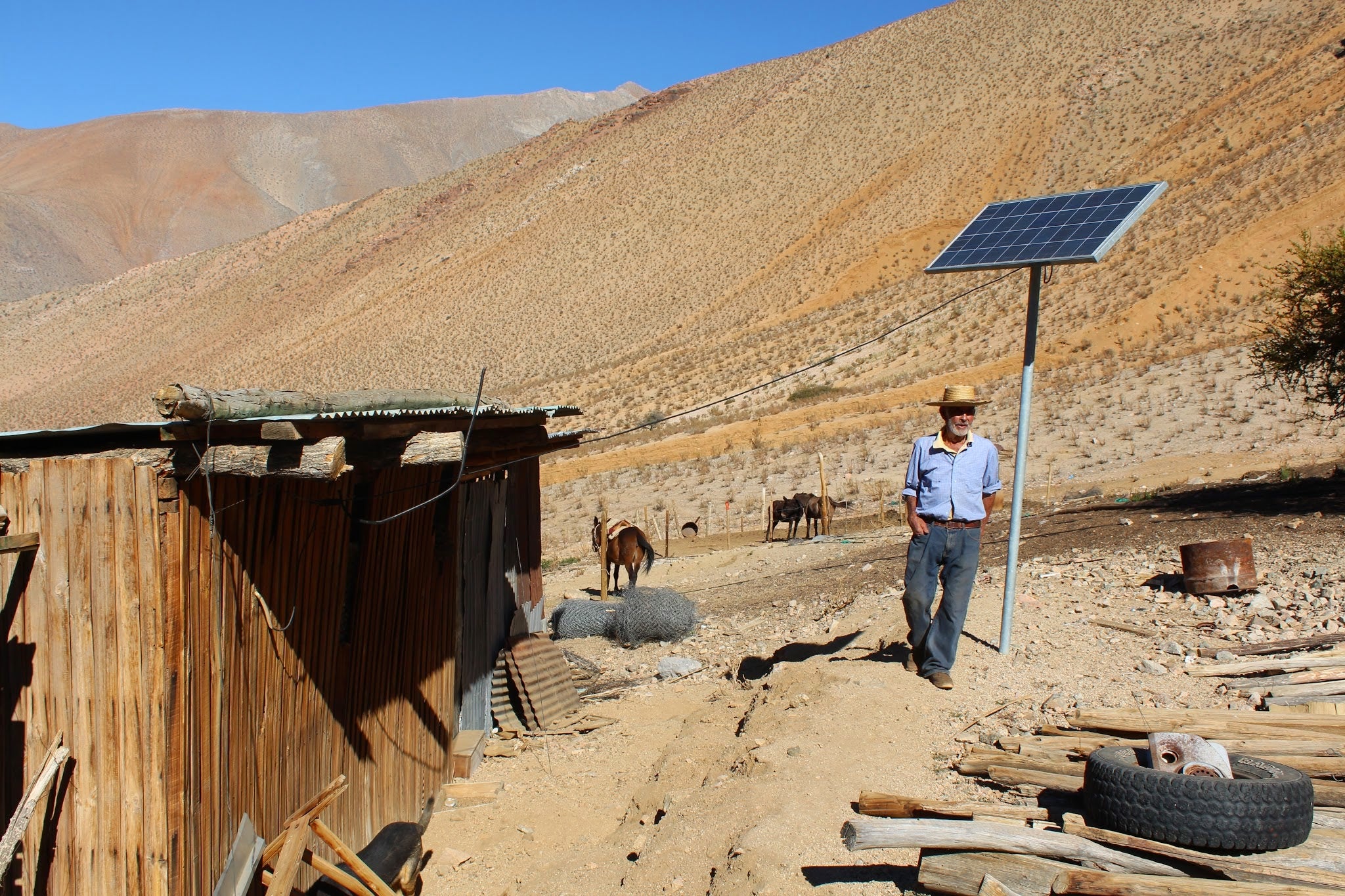
In the rural mountains of the Coquimbo region of Chile, where many residents are hours from the nearest town, an off-grid solar PV project has provided energy to over 3,000 homes. Branco, one of four students at a rural school in Chacay Alto, said he used the energy from PV panels at his school “for computers, lights, television, and to charge batteries.” Renewable energy can be a good option to reach isolated populations if the conditions are right for solar or wind energy, a message of the United Nations Sustainable Energy for All (SE4All) initiative, which has the objective of doubling renewable energy use worldwide.

Politicians are starting to realize the power of renewable technology. In September 2014 Indian Prime Minister Mr. Narendra Modi pledged to use solar and wind energy (100 GW of each over the next ten years) to provide energy access to 300 million people in his country. Modi went so far as to make a joint statement with the White Houseabout the importance of increasing energy access. This kind of political action is necessary to achieve the goal of SE4All to reach universal access to modern energy services by 2030. Although Asia and Africa have quite a long way to go to provide universal energy access, Latin America and the Caribbean are close to reaching the goal, with most countries at a 90+% electricity access. The Inter-American Development Bank (IDB), a SE4All partner, has spearheaded efforts to achieve universal access in the region via a regional hub, Sustainable Energy for All Americas (SE4ALL Americas).
At the Launch of the Decade of SE4ALLAmericas in Santiago, Chile in October 2014, Chilean President Michelle Bachelet announced that, “Democratization of energy should be the sign of our times.” Chile has reached 98% access and has invested heavily in renewables like solar and wind, which can be used to reach rural populations with the right conditions for the technology. To provide energy access to all will require the kind of political commitment shown by Modi and Bachelet. If other leaders in the region join President Bachelet in supporting the democratization of energy, there is the chance to make real change.
Using renewable energy has far-reaching benefits. For example, according to the REN21 Global Status Report, it can have a positive impact on health, reduce poverty, and help achieve greater gender equality. This is why it is important for governments to make a political commitment to achieving universal access. In Latin America and the Caribbean, two countries have already achieved universal access (Barbados and the Bahamas) and three are within a few thousand homes of achieving universal access. Trinidad & Tobago is 3,800 homes away from universal access and Uruguay and Costa Rica aren’t far behind with 5,000 and 12,000 homes respectively.

Reaching universal access, whether it is 3,000 homes or 300,000 requires a political commitment because often the homes are located in remote or isolated areas. In Chile, the IDB helped finance a project with CONAFE in the north of the country to connect 3,100 isolated homes to off-grid PV systems. The PV systems, which were installed in 2006, have continued to function 24 hours a day, seven days a week, and they are expected to have another 12 years of life. The success of the project is due to the fact that regular maintenance was structured into the cost of the project.
Many of the beneficiaries of the PV systems are rural goat herders, and they have been innovative in how they use the systems. Heriberto Castillo, a goat herder who lives in the mountains outside of Pisco Elqui, discussed how, in addition to listening to the radio and lighting his home, he also used the lights to scare away pumas and other predators at night, thereby protecting his goats, which are his livelihood. Renewable energy projects like this one in Coquimbo, Chile have a significant impact on the lives of rural populations and help achieve the objectives of Sustainable Energy for All.


Leave a Reply